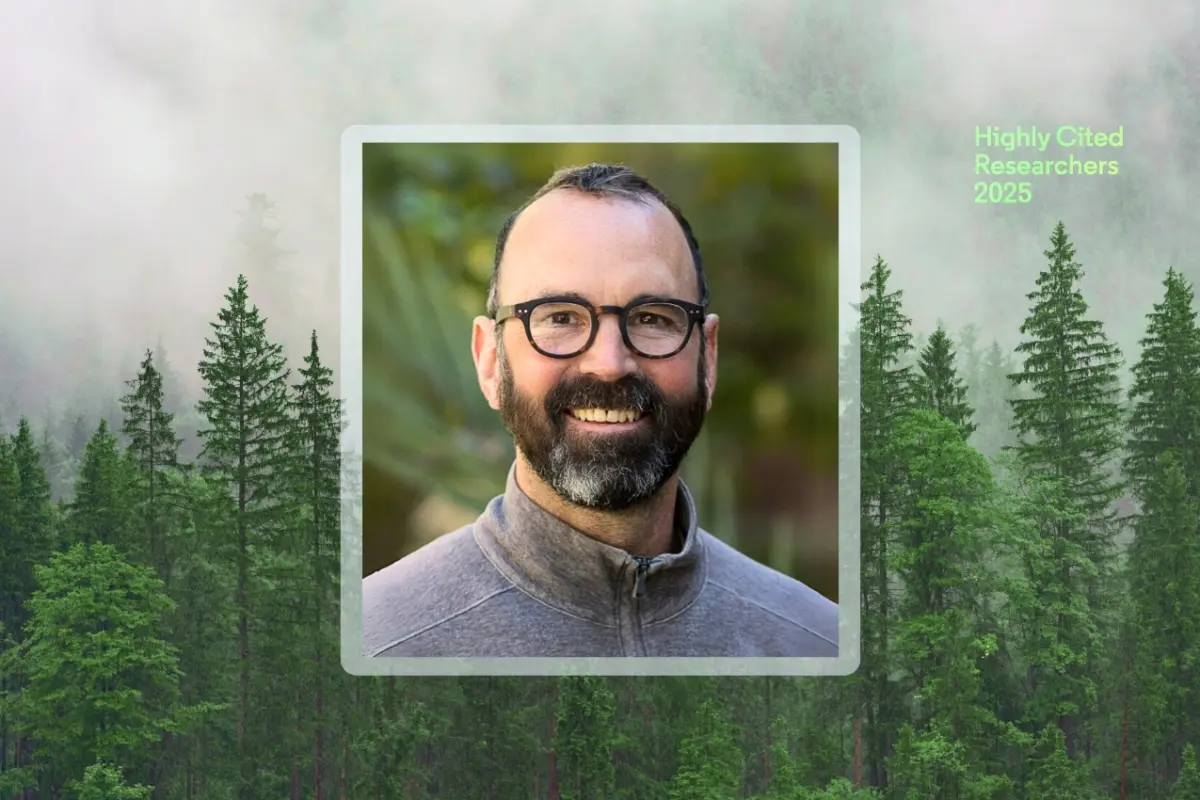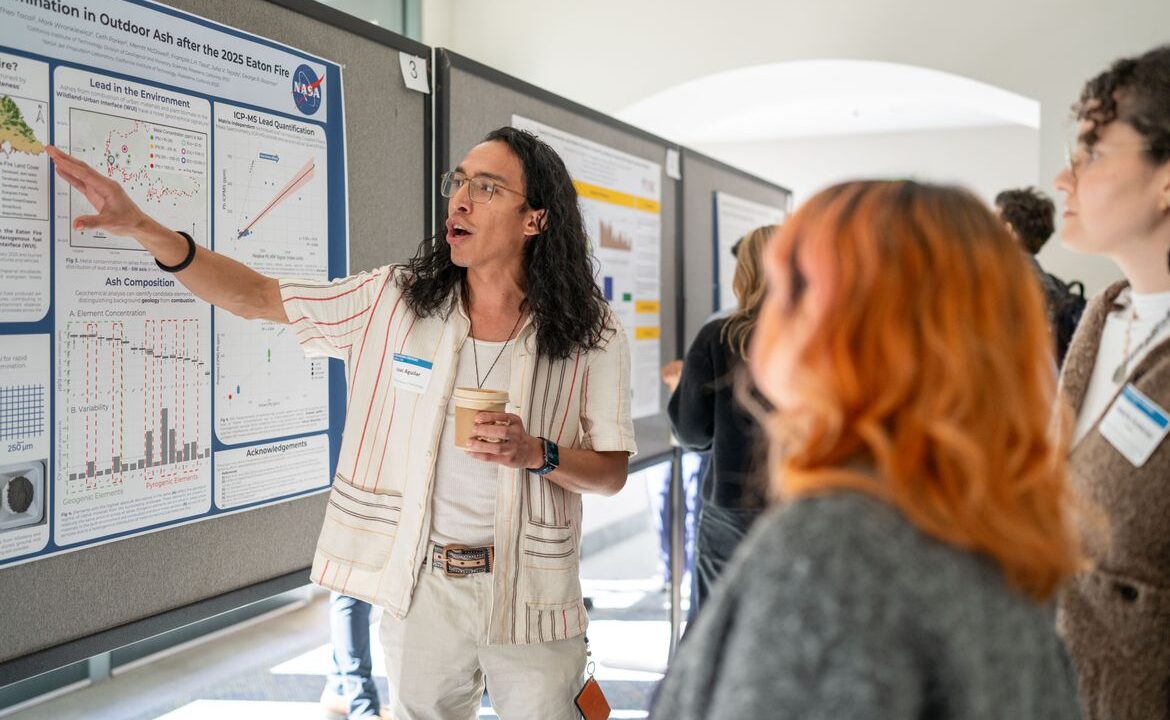
Alex Hall named among the world’s most influential researchers
Hall’s research — from climate modeling to wildfire and water forecasting — is now among the most widely referenced in the world, earning him a place on the 2025 Highly Cited Researchers list
Alex Hall, professor of atmospheric and oceanic sciences and director of UCLA Institute of the Environment and Sustainability, has been named among the world’s most influential researchers — a distinction reserved for only one out of every thousand scholars whose work is reshaping scientific understanding and practice.
Hall is one of 39 UCLA faculty members recognized this year, including IoES affiliate faculty Beate Ritz, professor of environmental health sciences and epidemiology, and IoES associate faculty Lawren Sack, professor of ecology and evolutionary biology. With this cohort, UCLA ranks among the top institutions represented globally — a marker of both individual excellence and the university’s leadership in climate and environmental research.
The annual Highly Cited Researchers list — compiled by the global analytics firm Clarivate — identifies scientists whose publications rank among the top 1% of citations worldwide over the past 11 years. It is widely regarded as one of the most rigorous indicators of scientific influence, reflecting not just visibility, but sustained, field-shaping impact.
First published in 2002, the list spans more than 20 scientific disciplines and includes a cross-field category for researchers whose breakthroughs inform multiple domains. This year, 6,868 scholars across more than 1,300 institutions and 60 countries earned the recognition — representing just 0.1% of the global research community.
“These honorees demonstrate influence that extends across borders, disciplines and time,” said David Pendlebury, head of research analysis at Clarivate’s Institute for Scientific Information. “Their work helps set research directions and drives progress toward solutions with global impact.”
Hall’s research career spans more than two decades and has helped define how climate change is understood at both regional and global scales. His modeling work has illuminated how rising temperatures alter weather extremes, water systems and wildfire behavior, and has been central to translating global climate trends into practical terms that cities, infrastructure systems and communities can plan for.
In California, Hall’s analyses of heat waves, wildfire risk and declining mountain snowpack have provided scientific grounding for water management, emergency planning and climate adaptation policy. His work has helped shift public agencies from relying solely on broad global projections toward localized, operationally relevant climate planning.
A UCLA professor since 2000, Hall founded the Climate and Wildfire Research Initiative and serves as faculty director of the Sustainable LA Grand Challenge — a university-wide initiative aimed at applying interdisciplinary research, expertise and education to help transform Los Angeles into the world’s most sustainable megacity by 2050.
Hall’s published findings are now widely referenced across atmospheric science, engineering, public health, environmental policy and urban planning. The citation record underpinning this honor reflects research that has moved from academic literature into the toolkits of practitioners, governments and institutions preparing for a warmer world.
Hall’s naming to the list places him among a small fraction of scholars whose work has sustained scientific influence — and emphasizes the rising importance of research that translates global climate science into local action.
Other UCLA researchers named to the 2025 list, representing fields from medicine and engineering to business and psychology, are:
Nasim Annabi, chemical and biomolecular engineering
Aditya Bardia, medicine
Timothy Cloughesy, neurology
Giovanni Coppola, psychiatry and biobehavioral sciences
Michelle Craske, psychology
Xiangfeng Duan, inorganic chemistry*
Bruce Dunn, materials science and engineering
David Eisenberg, biochemistry
Richard Finn, medicine
Edward Garon, medicine
Daniel Geschwind, neurology*
Jonathan Goldman, medicine
Sander Greenland, statistics and epidemiology
Ron Hays, health policy and management
Steve Horvath, biostatistics and human genetics
Kendall Houk, organic chemistry
Elaine Hsiao, integrative biology
Yu Huang, materials science and engineering*
Richard Kaner, materials science and engineering
Riki Kawaguchi, neuroscience
Baljit Khakh, physiology and neurobiology
Yuzhang Li, chemical and biomolecular engineering
Aldons Lusis, medicine
Aydogan Ozcan, electrical engineering
Mason Porter, mathematics
Antoni Ribas, medicine
Yair Rivenson, electrical and computer engineering
Jeffrey Saver, neurology
Dennis Slamon, hematology and oncology
Michael Sofroniew, neurobiology
Michael Storper, urban planning
Marc Suchard, human genetics
Christopher Tang, business administration
Tommaso Treu, physics and astronomy
Zev Wainberg, medicine
Kang Wang, electrical and computer engineering and materials science
* Researchers recognized in multiple fields.




